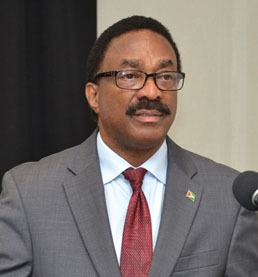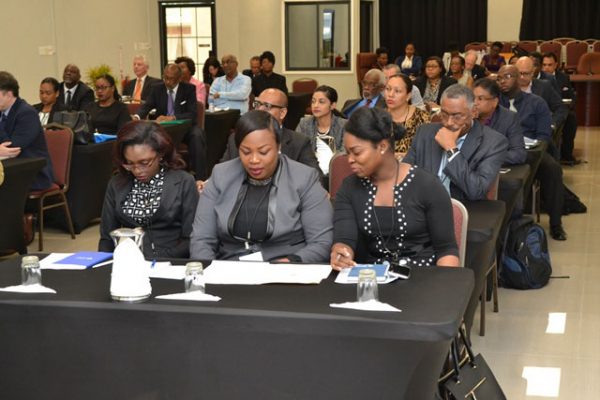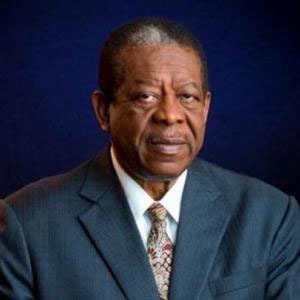The emerging oil and gas industry requires Guyana to sharpen its commercial arbitration skills, Attorney General Basil Williams, SC said yesterday while noting that government will be working to equip its partners with the necessary abilities.
“The International community’s growing attraction to Guyana and the bourgeoning interests of investors in the oil and gas sectors demand that our standards are tested and raised against the highest of benchmarks and the best standards of the international legal, business and dispute resolution community”, Williams said during the opening ceremony of the 3rd International Conference on Commercial Arbitration. The three-day conference was organized by the Chartered Institute of Arbitrators (CIArb) in collaboration with several partners including Caricom and the University of Guyana.
In delivering the feature address, Williams pointed out that arbitration has traditionally been the preferred and accepted mode of resolving international disputes. International investment and commercial transactions alike, he said generally favour the use of arbitration with the power of autonomy over the process, the ability to negotiate your own clause and tailor the procedure of the arbitration as against the strict and often lengthy and costly court proceedings.

“Experiences in the United Kingdom and most recently in Singapore, India and China would indicate that such fears are not without foundation. Countries having a strong legal framework have always attracted investors. Guyana with the recent development of its oil and gas sector is no exception and hence there is the need for greater capacity building while creating a legal environment that is sound and investor friendly”, he said.
Like Williams, President of the Caribbean Court of Justice (CCJ), Sir Denis Bryon also linked the emerging industry to the commercial arbitration process.
“The conference in Guyana is particularly timely, I think because of these oil and gas industries and the anticipated explosion of international commercial activities…” he later said during a lunchtime keynote address.
Among the areas covered yesterday were adjudication, mediation and arbitration and according to Williams, Guyana has court-assisted mediation, and welcomes the pursuit of other elements of alternative dispute resolution.
He said that recently, Guyana has seen the rise in its involvement in international transactions and this is not likely to decelerate in the near future. “Therefore, creating a legal climate that is conducive to economic trade and investment is crucial at this juncture more so since the time has come to promulgate modern arbitration laws to meet internationally acceptable standards”.
Williams made it clear that the role of the court in the arbitral process will not be alienated as ultimately the court acts as a gatekeeper for guaranteeing the integrity of the process.
“Thus, equally, with the willpower of the government to create the right legal framework is the need to equip our Bar, State Counsel and business communities on the ability to effectively draft arbitral agreements and respond to the disputes that are often inevitable”, he said.
He noted that all the government agencies, members of the judiciary, private and public sector businesses, academics and investors who were in attendance play a critical role in ensuring that the needs of the country are best served.
Catching on
Sir Dennis while pointing out that he has been associated with the CIArb for many

years described the earlier sessions as “very rich”. He reminded those gathered of an earlier call for there to be one arbitration centre in the region.
“We have been seeing the expansion of the attraction of arbitration regionally”, he said noting that he has been associated with activities to launch and develop arbitration centres in several parts of the region.
He expressed the view that persons are becoming knowledgeable about the issue and are now seeing the need for the establishment of centres.
“The idea of having international arbitration centres is catching on in the region”, he stressed.
Presently he said there are various activities within the region to update the existing harmonized legislative framework. While singling out the IMPACT justice programme, he acknowledged the presence of representatives of OhADAC (The Organization for the Harmonization of Business Law in the Caribbean. He explained that this organization pilots a project for the harmonization of business law in the broader Caribbean which may help to reduce legal constraints and consolidate economic integration.
He said that it would be interesting for regional practitioners, experts and academics in the Commonwealth Caribbean to see to what extent cooperative relationships could be enhanced.
In looking at the concept of integration in the context of arbitration, he said that the revised Treaty of Chaguaramas is “a really inspirational document and many of our lawyers have not been paying sufficient attention to it. It contains much value to facilitate integration…and so in the context of this meeting it is very significant that it endorses the use of ADR (Alternative Dispute Resolutions) to resolve disputes that may arise under the treaty”. He cited Article 188 which provides modes of dispute resolutions which include arbitration.
Sir Dennis noted with interest that there has been no dispute between the states in the region which have required resolution despite the fact that the press highlights areas of conflict in matters affecting the community. He noted that he can say with certainty that there were no disputes in the region since under the Treaty members states are required to notify the Secretary General of the existence of disputes and the mode of dispute resolution.
He said that preparedness is essential for success and that the growth of a sector of trained arbitrators is an additional element in the enhancement of an integration movement. He reminded the gathering that a presenter earlier spoke of having a regional list of arbitrators so that “the footprint of arbitration became much larger”.
“I have been pushing the thought within our region that the use of technology has to be at the heart of the dispute resolution processes and arbitration is also an issue of dispute resolution where the importance of access to justice is important”, he said before adding that in the development of resources and processes in justice, delivery will also include the use of technology to support the proceedings, for example electronic filing and case management.
He said that forums such as these which support training and information dissemination strengthen the benchmarks in the region and promote a healthy level of respect for the processes of arbitration throughout the region.
CIArb is a non-profit organization registered in the UK. It has a membership of 51, 000 members from 133 countries supported by an international network of 39 branches. CIArb provides education and training for arbitrators, mediators and adjudicators. It also acts as a global hub for practitioners, policy makers, academics and those in business, supporting the global promotion, facilitation and development of all ADR methods.
The institute offers a range of resources including guidance, support, advice, networking and promotional opportunities, as well as facilities for hearings, meetings and other events.









